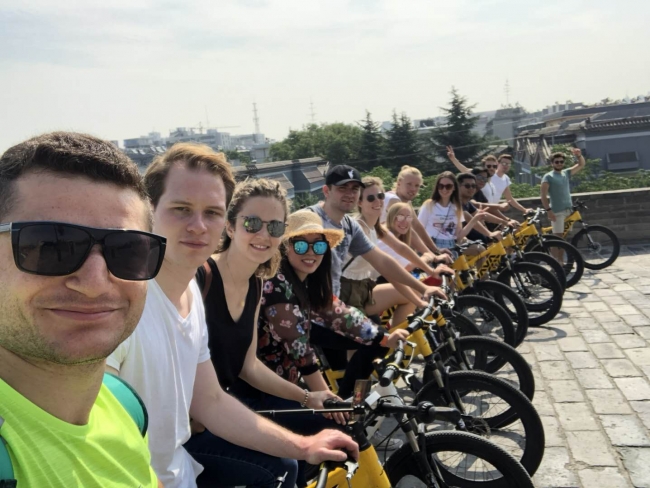記畢業旅行第一站——陜西
ADIYASUREN ANGARAG 蒙古 測繪學院
這是我第一次到陜西旅行,陜西也是這幾年一直向往的一個神秘地方。我非常高興能夠參加這次活動👨👩👧👦🙎🏻♂️。我們從上海出發到了渭南市,渭南市是陜西東部一個新興的中等城市♝,地處關中平原東部最闊地帶,是陜西的“東大門”。渭南氣候屬於暖溫帶半濕潤半幹燥🧑🏿🏭,地處黃🧎,渭👩🏽🏭,洛三河交匯➝,土地肥沃,是中國西北最優越的農業生態區⬜️。到了陜西第一天我們去參觀了韓城的黨家村,以前韓城被稱為“小北京”👩🏼🎨🏌️♀️,而黨家村因農商經濟發達則又稱為“小韓城”。黨家村是歷史文化名城,坐落於東西走向的泌水河谷北測🎍,所處地段呈葫蘆形狀🫗。黨家村主要有黨🧔🏿♂️,賈兩族💂🏽🎪,400戶家人,約600多年歷史。
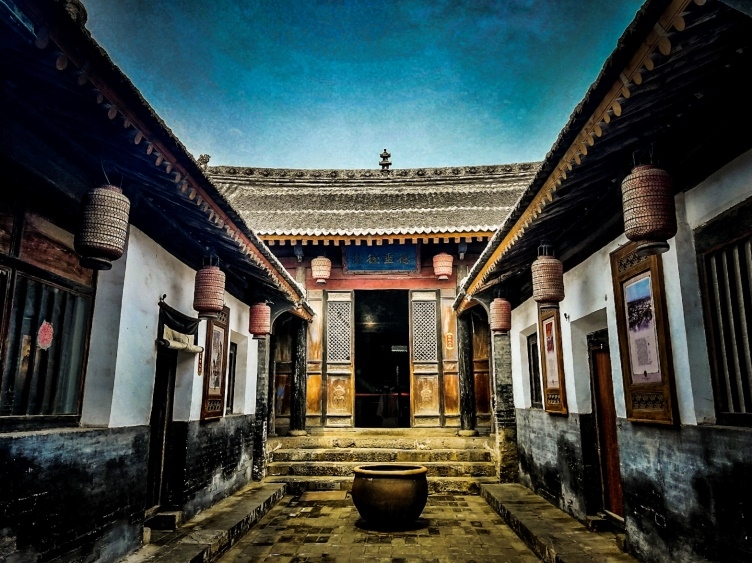
東方建築文化在中國,中國居民文化在韓城
陜西省作為絲綢之路的起點應有盡有,那麽旅行過程中最重要的一部分是當地的傳統美食👨🏼🦳。我們在合陽一條美食街吃了午飯,最好玩的是每兩個人中間100塊的一卡通📥,整條街上我們自己溝通選擇自己的飯。陜西的特色就是面食大街上的面館比飯館多,據當地人說😚,僅陜西的面食就有50多種。而且陜西面食把每一種面都做的與眾不同👚🐸,都賦予了深厚的文化,就像陜西的歷史一樣。其中最有名的便是岐山臊子面與油潑面以及biangbiang面了。在上海的面館中隨處可見油潑面❗️,油潑面是在周代禮面的基礎上發展而來𓀛,秦漢稱湯餅,隋唐叫長命面☘️,下入鍋內久煮不斷,宋元稱水滑面。油潑面最早在案板街⛈👊🏽,炭市街經營,西安很普遍。手工擀製又粗又寬面條,開水中煮熟後撈在碗裏,配上蔥花、肉絲💇🏿♀️🐔、花椒粉📗、鹽面配料,撒厚厚的辣椒面🍑,頓時滿碗紅光。除了面食外🤚🏿,肉夾饃是我覺得最好吃的小吃,這也是在上海生活了五年,吃了五年西安肉夾饃的自己第一次吃到最正宗的肉夾饃,好吃而且感動。也許🪲,吃到正宗的陜西美食就像在感受陜西的文化一樣。
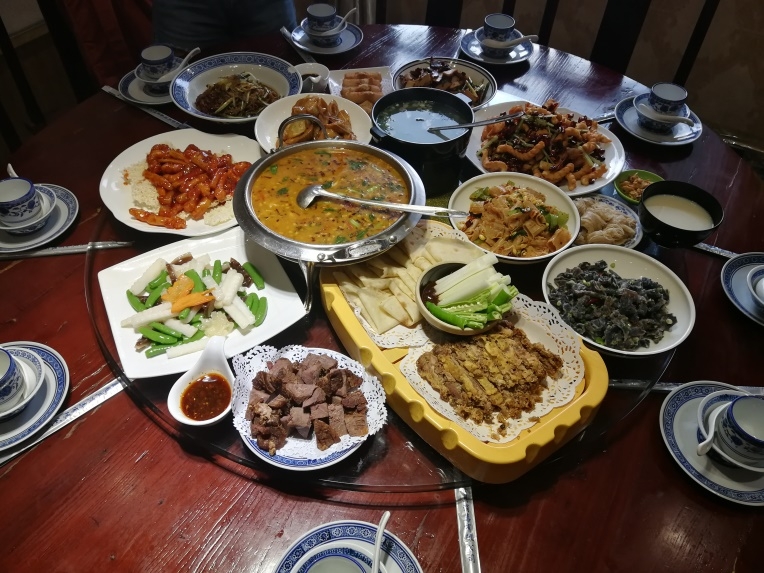
陜西美食
陜西省位於中國內陸腹地😧,秦嶺橫亙其中,八水環繞,自然景觀優美🧑🏻。西安古城長安🖥,是西北地區第一大城市。西安歷史悠久👭,是中國古代歷史上建都朝代最多,時間最長的都城,具有7000多年文明史。西安最大特點是,歷史文物和名勝古跡,其中最有名的就是秦始皇兵馬俑博物館,這也是很多外國人向往的景觀,這次我最期待的也是去看兵馬俑🏊🏽😋。博物館目前開發有三大俑坑,三座俑坑面積達2萬多平方米,內有車兵📦,騎兵,土兵等不同的兵種,還有陶馬近8000多件💷,排列整齊有序。陶俑的形象各不相同💥,平均身高一米八左右❤️🔥,陣隊面東而立。當看到那些氣勢磅礴的軍陣終於明白為什麽秦兵馬俑會被列為世界第八大奇跡🧜🏽!軍陣一望無際,每個坑都筆直站滿了秦勇,頭戴冠冕的🧑🏿🏫,面布胡須的🤴,眼神淩厲的各個神態不一🦿♣️,可謂栩栩如生🙍🏻♀️,千人千面。很難想象古人如何做到這般精雕細刻巧奪天工。現在我們所看到的兵馬俑是地下五米深的位置🦀,地宮在地下三十米深🔫,還末開發🙇🏼♂️,由於現在的科學技術🧑🏿💼,無法完好保護出士文物🖍。兵馬俑出土的時候,幾乎都是碎片🚚,經過研究人員的刻苦工作才能拼湊粘貼出一個🥽。雖然在博物館裏人山人海,但我們運氣很好!因為我親眼看到了裏面有很多員工在測量做實驗,而自己所學專業便是測繪,而且導遊說他們不是每天在這裏工作的🙋🏿♀️,所以我特別開心。兵馬俑具有很神秘的歷史👨🏼🎤,具有特別大的建設規模,到現在人類還沒找到這神秘地方的結點。
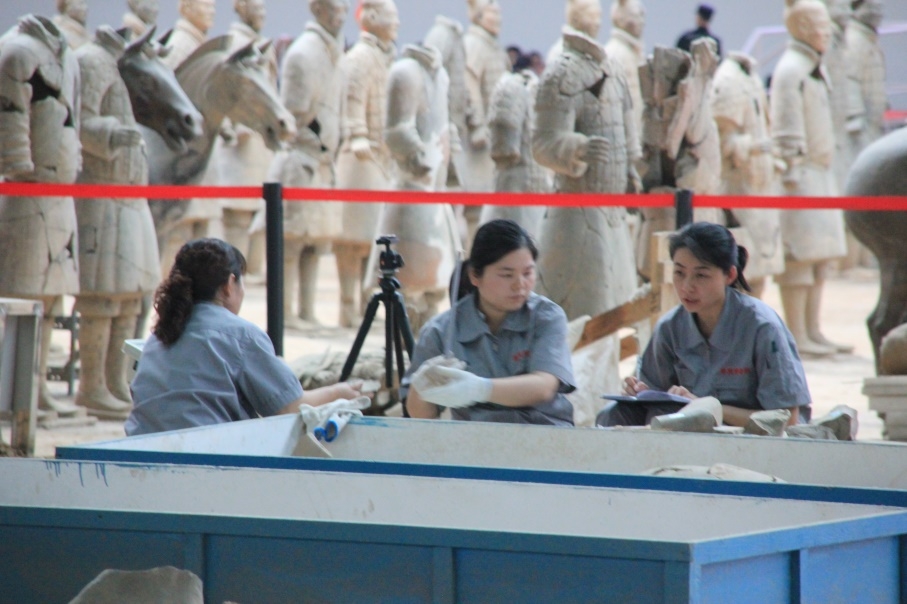
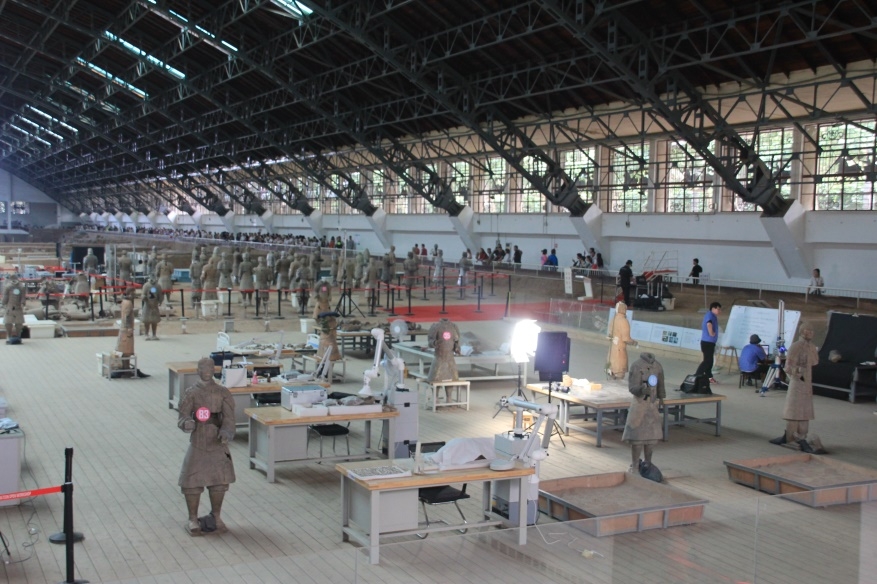
秦始皇兵馬俑博物館
唐大明宮是中國古代最為宏偉和最大的宮殿,同時也是世界史上最宏偉最大的宮殿建築之一。大明宮面積約3.2平方公裏🚍,周長約7.6公裏,比北京故宮大四倍⏳,也是曾經東京的小模型🆖。我們參觀了新建成的大明宮的模型,是對我來說非常難得的機會。
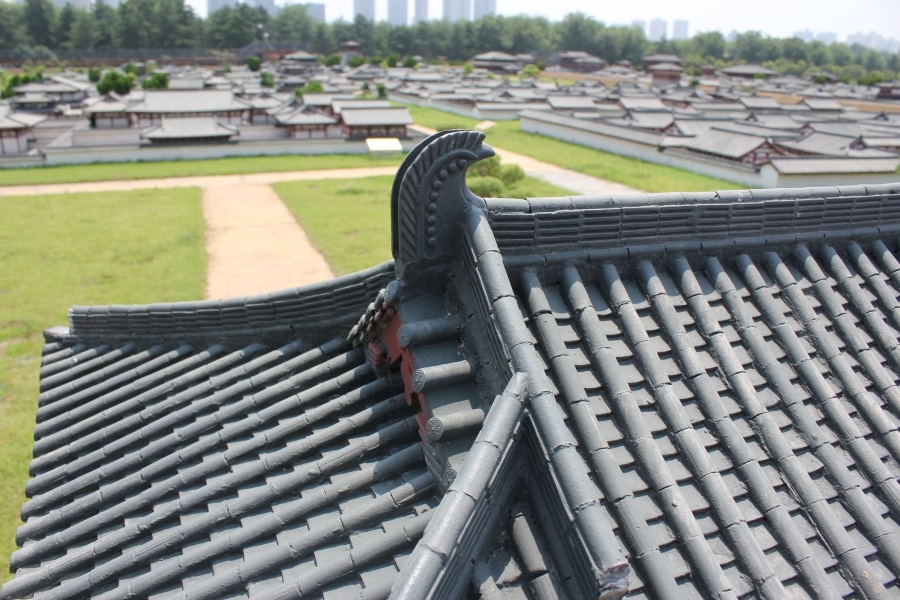
大明宮模型
若要感受中華大地的千年歷史與文明,西安是不得不去的城市。正好此次目的地便是西安,才有幸和這座千年古都相遇。一到晚上整個西安城便閃閃發光🎐,變得更美更活潑,古老文明與現代城市的美感交匯與萬千變化的燈光中🎑。西安具有目前規模最大的,保存最好的明代城墻,市中心的鐘樓和鼓樓因古代放置大鐘和大鼓而得名🦹🏼♀️♎️,也是西安的標誌性建築。城墻已有630多年的歷史🤷🏼♀️,高12米👰🏽♂️,由於古代沒有如今的高樓大廈👨🏼🔧,均是一樓或者二樓平房,所以在古代,站在城墻能看到整個長安市🧑🏭。雖然現在站在鐘樓上不能俯瞰西安全城🤵🏻♂️,但這絲毫沒有減少自己對於西安這座城市美的感受。
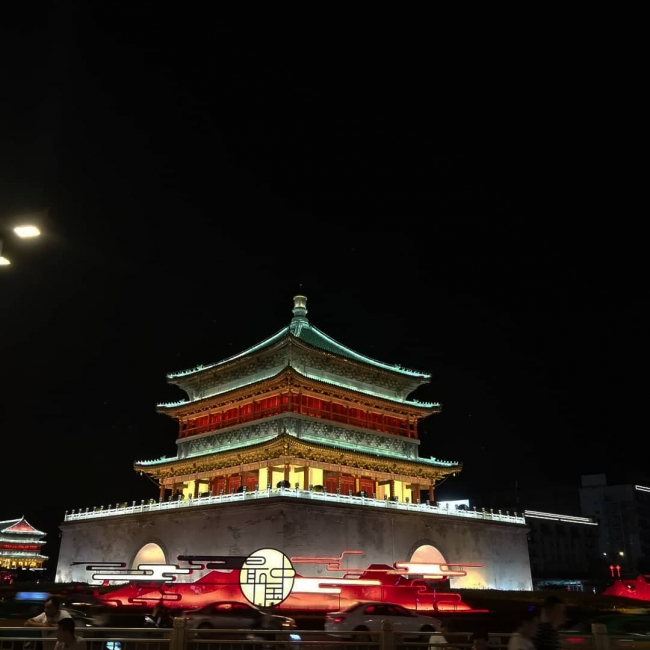
西安夜景鐘樓
很多人知道,上海的馬拉松被稱為“上馬”,北京的馬拉松被稱為“北馬”,但很多人不知道的是,而西安的馬拉松不是“西馬”而是“城馬”,這是因為西安的馬拉松是在城墻上跑步的。雖然我們這次沒有像跑城馬一樣在城墻上跑步,但有機會在城墻上騎自行車,而且一次騎了15km👨🚀,這對於我來說也是很有意義的一個挑戰與嘗試🥲。

西安城墻
在此特別感謝我們導遊,在高溫炎熱的天氣中給我們講解每個細節背後的故事,這樣敬業的精神值得我學習。因為自己也在家鄉考了導遊證,所以這次旅行,除了參觀🐦🔥🧘🏿♂️,在關於如何做好一名導遊方面也學到了很多。最後要感謝欧亿辦公室老師,給我們安排這次去陜西的活動,短短的5天內讓我更深刻的了解了中國的歷史與文化🧖🏿♂️,增加了我的學習動力🌎。最後🛄,心底由衷感謝呂校長邀請我們去參觀渭南🎯🙇🏻♂️。
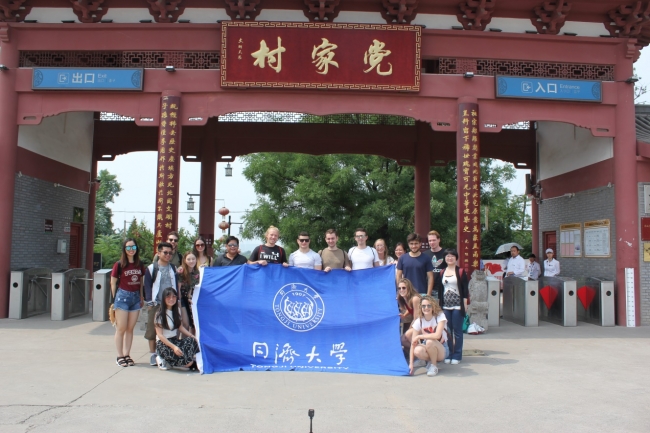
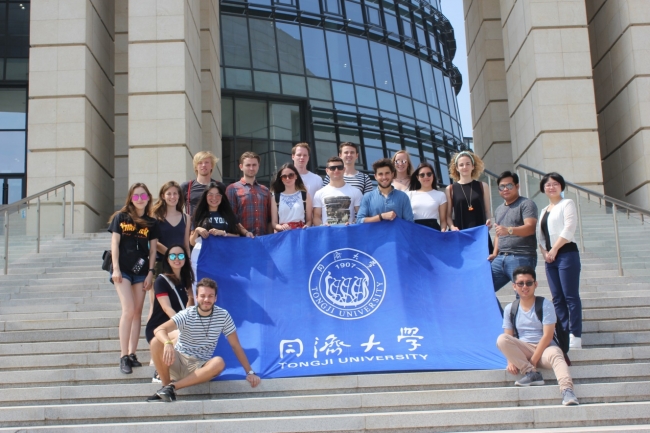
Report of Trip to Shaanxi
ZORN DENNIS GERMANY CDKH
Trip to陜西 (Shaanxi)
Organized by the International Students Office of Tongji University, the trip took around 20 international students from six different countries to one of China's most traditional areas.
On the recommendation of the Vice President of Tongji University, Prof. LYU Peiming, half of the trip was spent in the rather small but steadily growing metropolis 渭南 Weinan, before the other half was spent in the former, ancient capital of China 西安 Xi'an.
Day 1
The excursion started punctually at 9 a.m. with breakfast already prepared for all students. A bus took us from Siping campus to Shanghai Hongqiao station, from where our journey to Weinan started in about six hours in a comfortable express train.
On arrival, our tour guide, who provided us with information about the stations for the following days, greeted us and brought us to the hotel.
The evening ended with a foretaste of typical provincial food, most of which can be summed up as „spicy „for the European taste.
DAY 2
Activities around Weinan were planned for this day. The first stop was Dang village. It is the largest, oldest and best-preserved stockade village. It was mainly inhabited by people with the surnames Dang and Jia, with Dang being the oldest inhabitants. The village was built in 1331 and reached its peaks in the Ming and Qing Dynasties. Due to the excellent conservation, the life of the people at the heyday of the village can be well imagined.
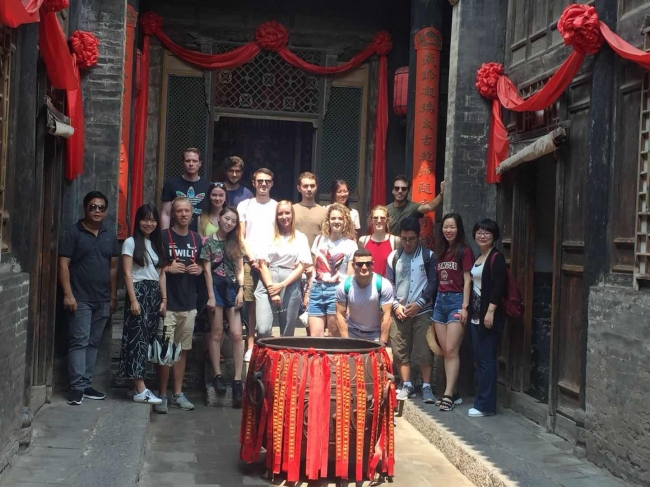
For lunch, we were taken to a plaza with many different stalls where you could enjoy different local dishes. The place had a nice street food ambience typical for the area. The famous 肉夾饃 was particularly tasty. This dish is also known as Chinese hamburger.
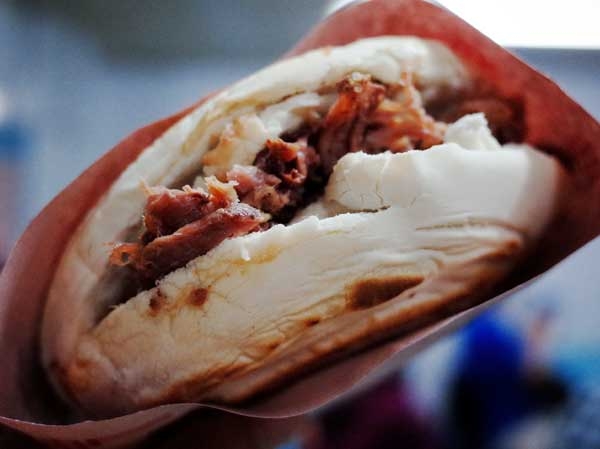
The last stop in the Weinan area was the Hechuan Parkland. There we took a boat to a hot spring, where we rested for a short cooling off. After that, we walked over the lotus fields and enjoyed the moor-like landscape, which lay in the valley of beautiful mountains, before we went back to the hotel.
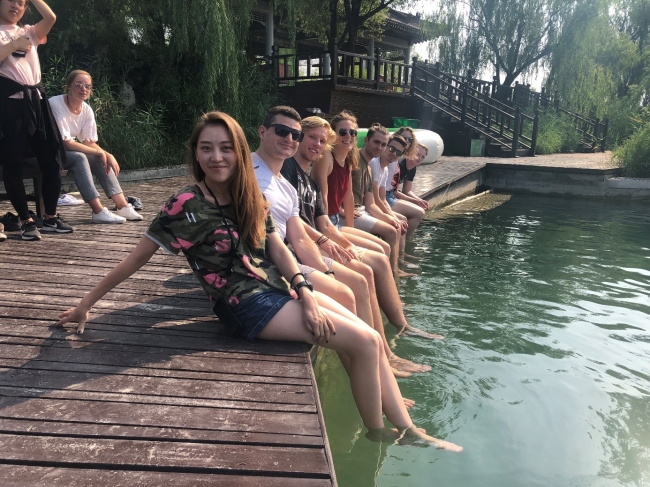
Day 3
After an extensive breakfast, we went to the Museum of Weinan, where various relics were exhibited. In addition, several Chinese exchange students from Weinan Normal University were present for intercultural exchange. In the museum, we watched various musical performances, including fascinating shadow plays and an impressive puppet show.
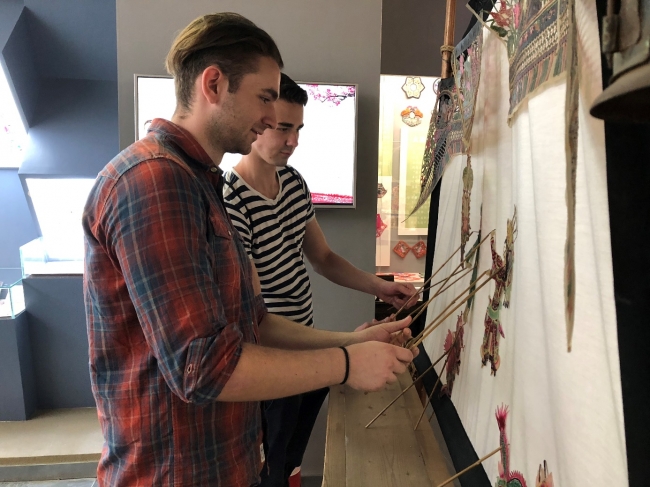
Since Professor LYU Peiming, Vice Mayor of Weinan and Vice President of Tongji University made the recommendation and he also made the time to meet us. We would like to take this opportunity to thank Prof. LYU Peiming again! 謝謝!
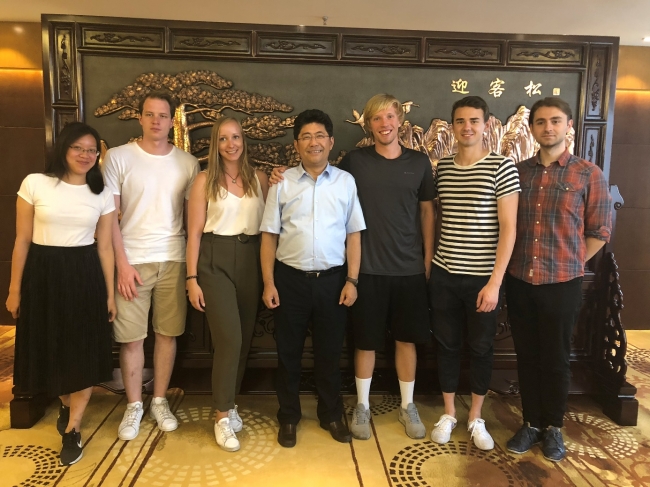
The stop scheduled for the afternoon led us to the mausoleum of Qin Shi Huang. What is special about the mausoleum are the terracotta warriors, each of which is different in size and shape. Work on the mausoleum began in 246 B.C., so that the colours of the warriors have unfortunately faded away in the meantime. Local farmers discovered the first figures of the Terracotta army in 1974. Altogether four pits were discovered, of which only three are filled with warriors. Estimates put the number of warriors in the pits at over 8000.
The discovery is very remarkable, which unfortunately the exhibition does not do justice to, since it is very full and hardly possible to examine the individual figures.
After the exhibition and a delicious meal in Xi'an, the evening ended in a beautiful hotel.
Day 4
The penultimate day was spend after a restful sleep and rich breakfast with the learning of a traditional drum dance, which looks simple, but required a quite high degree of coordination. Many other Chinese for various dances, which made learning the dance a unique experience, also use the square in the palace. The pictures and the video speak volumes here.
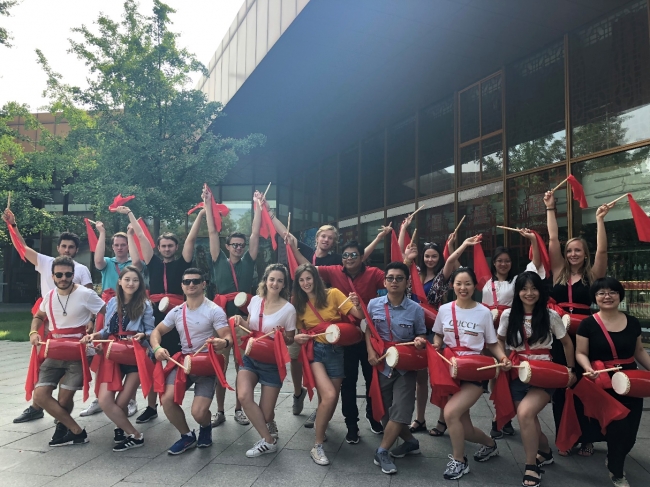
To give a little insight into life in the palace, we watched a short film about a romance that took place during the Tang Dynasty. Afterwards we visited the Daming Palace in Xi'an. The palace belonged to the Tang Dynasty and was used as a royal residence for 220 years. The palace has been declared a Chinese cultural heritage. Since the condition of the palace is less well preserved and was discovered in the 1960s, a miniature of the original palace was created. Here you can get a better idea of the beauty of the palace at that time.
There was something special about lunch. All food delivered was vegetarian. With tofu and the use of seasonings, hardly any difference to the typical Chinese non-vegetarian food was noticed. Yummy!
The evening programme was self-determined, but the students exchanged ideas and decided to take a look at the Muslim Road together. There many Muslim dishes could be enjoyed and so the evening could end.
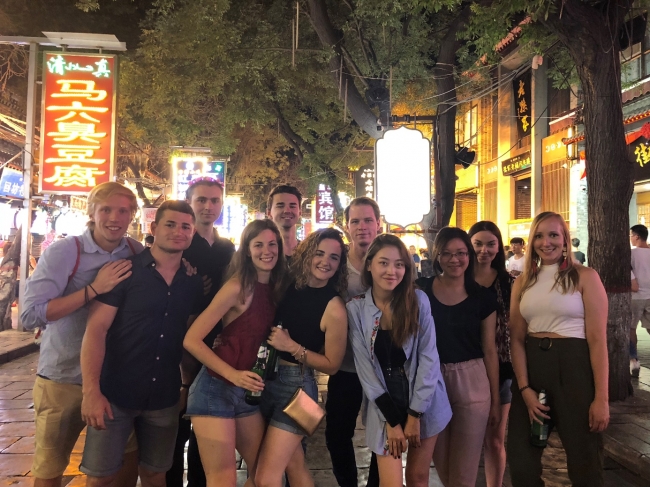
Day 5
The last day of the trip was used by a bicycle ride on the largest city wall of China. On the 14 km long tour the city could be visited again and discovered that Xi'an lies between tradition and modernity. In the bright sunshine, the last day was used to get a last overview of the city before we went back to Shanghai by express train.
All in all, the trip was a unique experience. The trip was very well organized and everything was planned. The arrangement between management and students worked great and it was great fun for all students. All CDHK students thank for a great organization and an experience to look back on for a lifetime! Thanks!
